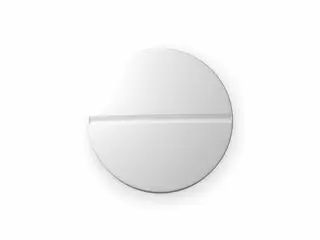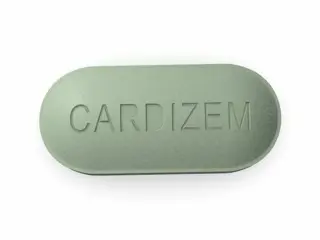Cardiovascular

Explore our wide range of cardiovascular medications designed to support heart health, manage blood pressure, and improve circulation. Find trusted brands and effective treatments to help you maintain a healthy cardiovascular system. Shop now for fast, reliable delivery.
The cardiovascular category includes essential medications to manage heart and blood vessel conditions. These drugs help treat high blood pressure, arrhythmias, heart failure, and prevent blood clots. Below is a review of popular medications in this category.
Altace (Ramipril) is an ACE inhibitor used to lower blood pressure and reduce the risk of heart attack and stroke. It works by relaxing blood vessels, making it easier for the heart to pump blood. Altace is often prescribed after a heart attack or for patients with heart failure. Common side effects include cough, dizziness, and fatigue. It should be used under medical supervision, especially in patients with kidney issues.
Cardarone (Amiodarone) is an antiarrhythmic drug used to treat and prevent serious heart rhythm disorders. It helps maintain a normal heartbeat by controlling electrical signals in the heart. Cardarone is effective but must be used carefully due to potential side effects like lung toxicity, liver damage, and thyroid problems. Regular monitoring is essential during treatment.
Cardizem (Diltiazem) is a calcium channel blocker that relaxes the heart and blood vessels. It is prescribed for high blood pressure and angina (chest pain). Cardizem slows the heart rate and improves blood flow. Side effects may include swelling, headache, and dizziness. It is often preferred for patients who cannot tolerate beta-blockers.
Cartia XT is another form of diltiazem with extended release. It provides a steady dose over time, helping to control blood pressure and angina symptoms more effectively. The medication helps reduce the workload on the heart and decrease oxygen demand.
Cordarone, similar to Cardarone, is used for irregular heartbeats. This medication is crucial for preventing life-threatening arrhythmias. It requires careful dose management and frequent checkups to avoid serious adverse effects on the lungs, liver, and thyroid.
Coumadin (Warfarin) is a widely used anticoagulant. It prevents blood clots, which can lead to stroke or heart attack. Coumadin is commonly prescribed after heart valve replacement, atrial fibrillation, or deep vein thrombosis. Patients must monitor their blood clotting levels regularly to adjust the dose and avoid bleeding risks. Warfarin interacts with many foods and drugs, requiring strict adherence to prescribed guidelines.
Lanoxin (Digoxin) strengthens heart muscle contractions and helps control heart rate. It is often used in heart failure and atrial fibrillation patients. Lanoxin improves symptoms such as fatigue and shortness of breath. Careful monitoring of drug levels is vital, as the therapeutic dose is close to toxic levels.
Lisinopril is an ACE inhibitor similar to Altace. It helps manage high blood pressure and heart failure. Lisinopril prevents the narrowing of blood vessels, lowering the heart’s workload. Side effects may include cough, dizziness, and elevated potassium levels.
Micardis (Telmisartan) is an angiotensin II receptor blocker (ARB). It relaxes blood vessels to lower blood pressure. Micardis is used in patients who cannot tolerate ACE inhibitors. It has a good safety profile and helps protect the kidneys in diabetic patients.
Nimotop (Nimodipine) is a calcium channel blocker targeting the brain’s blood vessels. It is mainly used after subarachnoid hemorrhage to prevent brain damage caused by blood vessel spasms. Nimotop improves blood flow in the nervous system, thus reducing the risk of complications.
Plavix (Clopidogrel) is an antiplatelet agent that prevents blood clots. It is commonly prescribed after heart attacks, strokes, or stent placement. Plavix reduces the risk of new clots forming by inhibiting platelet aggregation. Patients should be aware of bleeding risks and avoid abrupt discontinuation of the medication.
Samsca (Tolvaptan) is a vasopressin receptor antagonist. It is used to treat low blood sodium levels caused by heart failure or liver disease. Samsca helps increase water excretion without losing salt, improving fluid balance in the body. This is important for patients with fluid retention and swelling.
In summary, cardiovascular medications serve a wide variety of roles. From blood pressure control to arrhythmia management and prevention of blood clots, these drugs are vital for maintaining heart health. Patients must follow their healthcare provider's instructions carefully and report any side effects promptly. Regular checkups and blood tests are often required to ensure safety and effectiveness.










